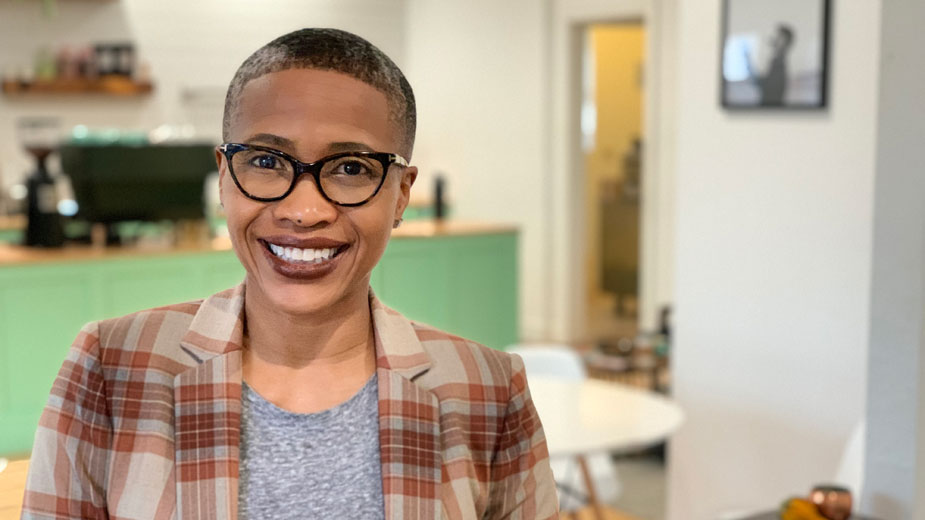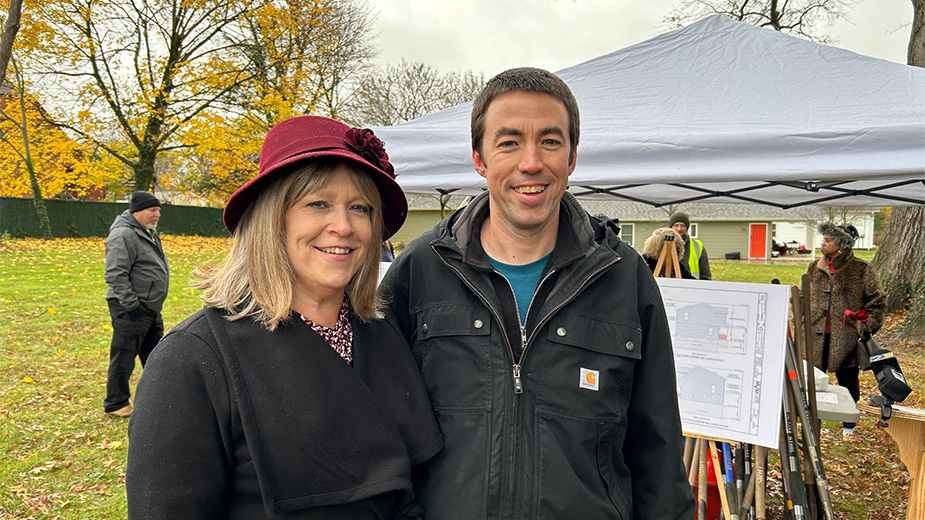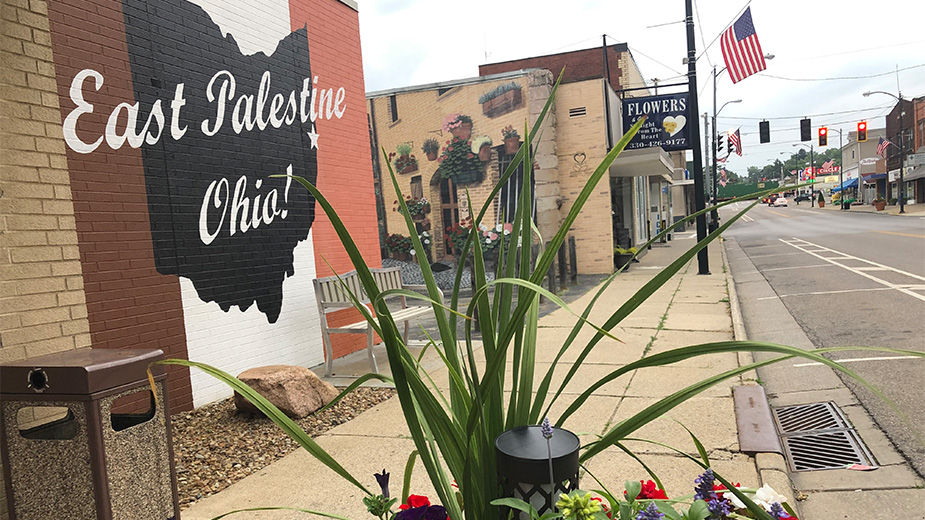Foundations Advance Region’s Quality of Life
YOUNGSTOWN, Ohio – Last year, six regional foundations in the Mahoning and Shenango valleys awarded more than $50 million in grants to improve the region’s quality of life.
The grants ranged from less than $1,000 to more than $1 million, each conforming to the missions of the foundations and their component funds – and the overall well-being of the region.
As the strategic plans of foundations start to align, it’s a sign that the nonprofit funding community is heading in the right direction, says Jennifer Roller, president of The Raymond John Wean Foundation. Because foundations collaborate as much as possible, they can pull out the part that makes sense for their mission, she says.
Regardless of how they’re structured, every foundation is investing in the improvement of the community they serve, affirms Shari Harrell, president of the Community Foundation of the Mahoning Valley.
“Together, we have been working on convening the major leaders in the community to identify issues where we can all work together,” she says.
This month, as fundraising professionals here and across the country mark National Philanthropy Day Nov. 15, The Business Journal interviewed six foundation leaders about their missions.
‘Crystal Clear’ Direction at Wean Foundation
Over the past year and a half, the Wean Foundation engaged stakeholders, elected officials and businesses to implement a strategic direction for its work. Assessments and evaluations from the last decade allowed the foundation to check back on what it had been doing, what it didn’t get to and to ensure accuracy in its direction and focus, Roller says.
“Now that we are crystal clear about the direction, we’re also spending our time on our communications brand and voice so that we can execute these strategies more efficiently,” she says.
The Wean Foundation has assets in excess of $84 million, $2.3 million of which is distributed annually in grants and capacity-building efforts. Its focus areas include community revitalization, economic opportunity, educational opportunity and public sector leadership.
“We have been focusing on how to drill down those areas so that we can deliver on our mission,” Roller says.
Through its strategic direction, the foundation is emphasizing race equity and inclusion, Roller says. Since 2017, it has offered two-day trainings through the Racial Equity Institute to more than 480 people from all sectors so there can be a shared understanding of racial equity and inclusion.
Working Across Sectors at CFMV
The Community Foundation of the Mahoning Valley has more than 140 funds, each with its own area of interest, Harrell says. Dollars can be leveraged from several funds when awarding grants, creating a collaborative environment among its funds.
But the foundation also collaborates with other foundations about what they see as the greatest need. “Especially with the Wean Foundation, the Youngstown Foundation,” Harrell says.
Conversations include “what we’re learning, what our experiences have been, how we might leverage dollars when there’s something that overarches all of our directions and things we do,” she explains.
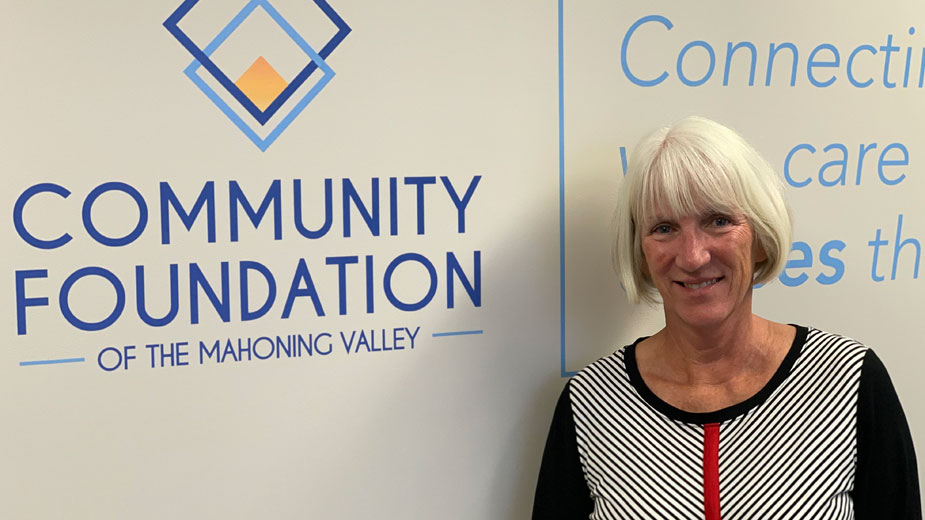
The Community Foundation has more than $30 million in assets and has provided $23.5 million in grants to hundreds of charitable and educational institutions. One of its top priorities each year is helping donors and individuals who are interested in philanthropy fulfill their charitable interest, Harrell says.
“What that means for our general grant-making from the Community Foundation overall is that it’s wide and varied,” she says. “And it’s always wide and varied.”
The Community Foundation has three affiliated funds: the William Swanston Charitable Fund, the Trumbull Memorial Health Foundation and the Western Reserve Health Foundation. The latter two are a main part of the Healthy Community Partnership Mahoning Valley, a “cross-sector collaborative where we’re pulling together people from across the community,” she says.
The partnership, which formed a few years ago, focuses on three areas: healthy food access, active transportation and parks and green spaces. In July, the group broke ground on the Lincoln Knolls Community Park.
It also placed a food access coordinator in each county and launched the Where Sidewalks End project in partnership with Lit Youngstown to raise awareness of how physical infrastructure impacts community health.
‘Building Year’ for the Youngstown Foundation
The Youngstown Foundation is wrapping up its centennial celebration this year, says Executive Director Jan Strasfeld, as it promotes philanthropy and educates the community.
“This year has been a building year on that concept to ensure that donors understand the needs in the community and helping to connect their funds with the philanthropies they’re most interested in,” Strasfeld says.
The Youngstown Foundation manages more than 80 funds, Strasfeld says, its largest being the unrestricted fund, which funds quality-of-life initiatives in education, health care, social services, culture, economic development and the environment.
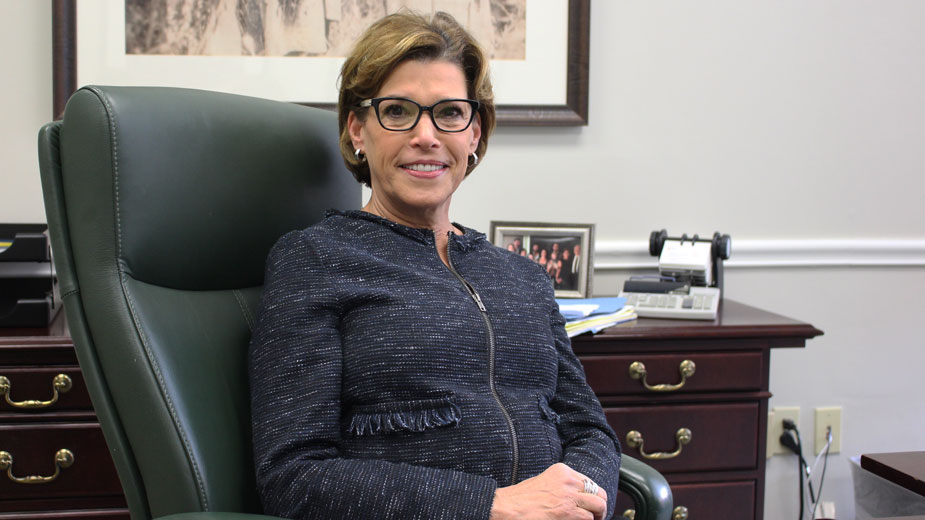
Needs relating to the unrestricted fund vary from year to year, while special interest funds, such as the Hine Memorial Fund, have a specific focus. That fund in particular focuses on children with disabilities.
Typically, the foundation spends 4% of the income available from each of the funds, which “could end up being anywhere from $4 million to $8 million” annually, according to Strasfeld.
“Some of it is direct service where we’re ensuring people have food and a roof over their head,” she says. “It’s also the other end of the spectrum where we support education and we want to help with workforce development.”
For arts and culture, the foundation purchased the naming rights to Youngstown’s riverfront amphitheater with a $3 million donation.
“We’re so excited about the amphitheater,” she says. “We really did our homework to decide what would be an appropriate 100th anniversary gift the whole community could use.”
‘We See Tomorrow’ at YSU Foundation
With a focus on education, the Youngstown State University Foundation is grateful for the work other foundations do, says vice president Heather Chunn.
“We help each other,” she says. “While we fund the university and students, we do provide within our budget the opportunity to support these other entities by attending different functions they’re at or fundraisers.”
The YSU Foundation manages $255 million in assets and provided $8.6 million this year, funding more than 5,000 scholarships, Chunn says.
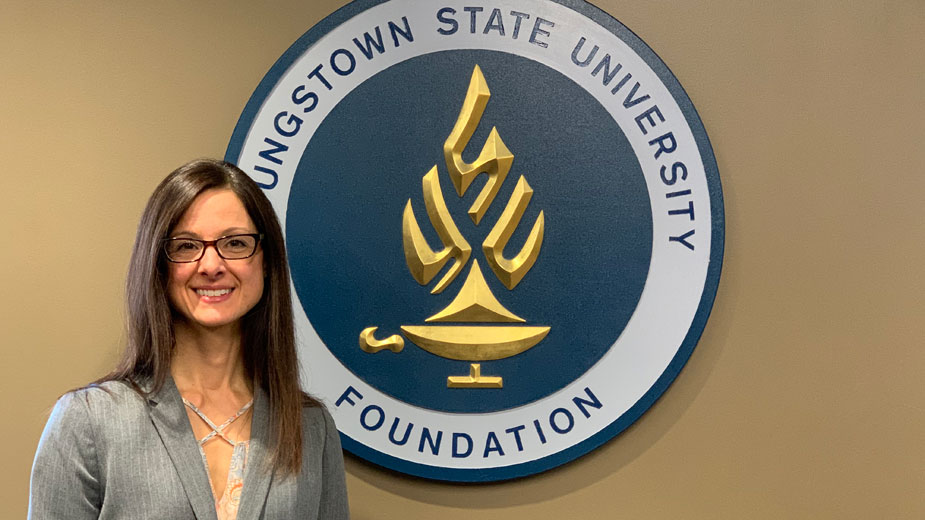
As of Oct. 15, the We See Tomorrow campaign – the foundation’s main focus – had reached $96.5 million of its $100 million goal, Chunn reports. Initially, the seven-year campaign was to reach the goal in June 2021, but looks like it will hit that mark by the end of the year, Chunn says.
“We recognize that we play a crucial role in this community and if we’re going to stay strong and competitive, and keep our students here and educate them, we need to provide financial support,” she says.
“It’s important to President [Jim] Tressel that our students leave here with little or no debt.”
Mercy Health Foundation Focuses on Infant Mortality
The primary focus of the Mercy Health Foundation Mahoning Valley is to support the work of its parent organization in the area, says Paul Homick, foundation president.
“This year, we’ve been working hard to not only continue the work around the community health needs, but we’ve done a considerable amount to address infant mortality, the opioid epidemic and food issues,” he says.
The foundation also continued its prescription assistance program for Mercy patients who are unable to afford their medication, he notes.
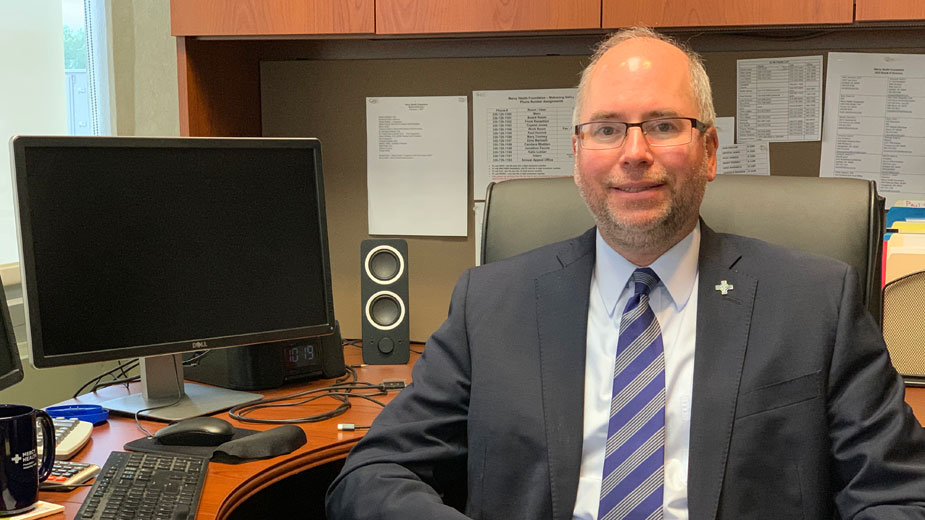
“We have continued to look at our Meds to Beds program, which is providing patients whenever they are discharged with their prescriptions so they have it as they leave the hospital,” he says. “They don’t have to stop at the local CVS or pharmacy on their way home.”
Last year, the foundation provided $5.5 million in benefits to Mercy Health and the community, and looks to exceed $5 million this year as well, Homick says. Total assets sit at $52 million.
In addition, Mercy Health Foundation is putting another $400,000 dental van on the road soon, Homick says. Fundraising started last year to help the foundation’s dental program go into schools and other parts of the community to provide dental services.
‘Breaking Down Barriers’ in Mercer County
The Community Foundation of Western Pennsylvania and Eastern Ohio’s largest focus is ensuring that donors are making the necessary impact they want to have in the community, says Kyle English, executive director.
With 700 funds in its charge, the foundation is always building relationships with local nonprofits and trying to find efficient ways to get in touch with donors. Attracting youth to the trades has been a large focus this year, English says.
“We have a number of donors that have a focus in specific areas, so right now, we have board members and donors who are looking at ways in which they can deploy grant money to fill in gaps where youth would be more attracted to the trades,” he says.
The foundation has been working to break down the stigma around working in the trades, English says.
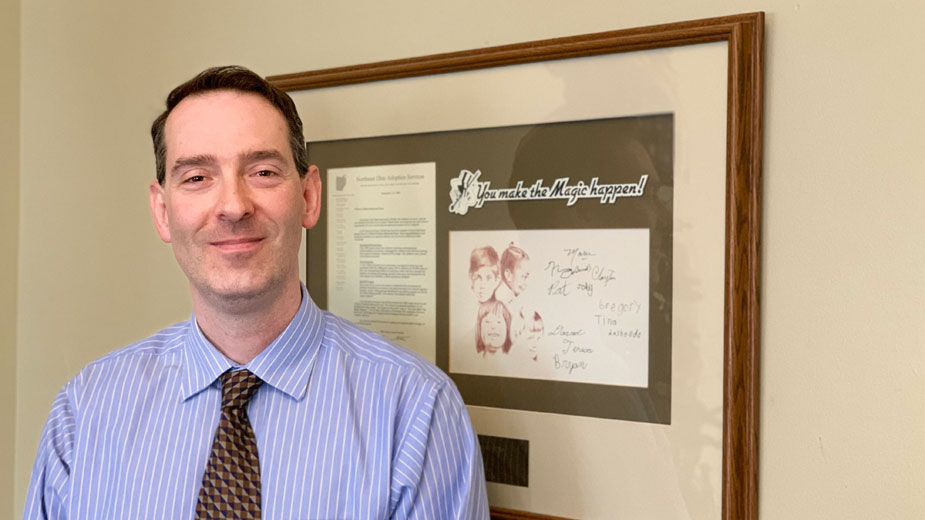
Access to employment and awareness of making a living wage locally is “huge” and could combat symptoms of other community issues, such as addiction, he observes.
“People turn to addiction when they don’t have help and they don’t see a future,” he says. “One of the ways you can battle that is by exposing the trades as a great alternative for youth in our area.”
In addition, the foundation has donors and board members who have focused on ensuring teens in foster care have all of their needs met, English says.
“You think of someone not being able to get the toiletries they want or deodorant,” English says. “Figuring out where to deploy grant money, where it would have the largest impact in the community, those are some of the needs we see out there.”
So far this year, the foundation has funded $9 million in grants, more than the typical $6 million to $8 million, English says. It has just under $100 million in assets.
Pictured at top: Jennifer Roller, president of The Raymond John Wean Foundation, says the group sought evaluations from the community to hone its focus.
Copyright 2024 The Business Journal, Youngstown, Ohio.
